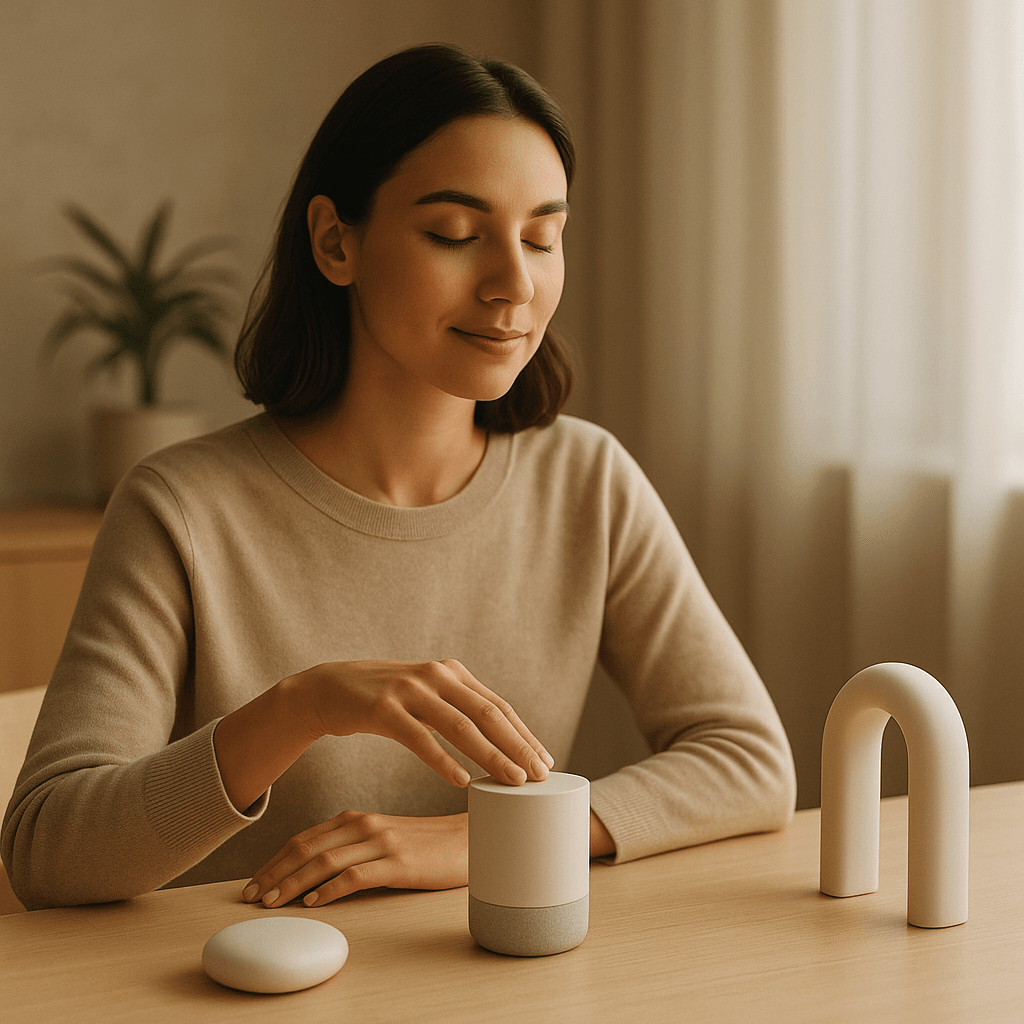Jony Ive just revealed the surprising philosophy behind his secretive OpenAI hardware project. Speaking at OpenAI's developer conference in San Francisco, the ex-Apple designer said his upcoming AI devices prioritize human wellbeing over productivity - a radical departure from Silicon Valley's efficiency obsession. The admission offers the clearest glimpse yet into what could reshape how we interact with AI technology.
Jony Ive just dropped the most intriguing detail yet about his mysterious OpenAI hardware collaboration. At OpenAI's developer conference Monday, the legendary Apple designer revealed that his upcoming AI devices won't chase productivity gains - they'll chase happiness instead.
"I don't think we have an easy relationship with our technology at the moment," Ive told the San Francisco audience alongside CEO Sam Altman. "Rather than seeing AI as an extension of those challenges, I see it very differently." The devices should "make us happy, and fulfilled, and more peaceful, and less anxious, and less disconnected," he explained.
It's a striking departure from the productivity arms race consuming Silicon Valley. While everyone from Microsoft to Google pushes AI tools promising to boost efficiency and streamline workflows, Ive is betting on emotional resonance. The approach reflects his broader critique of our current tech relationship - one he believes needs fundamental transformation through thoughtful design.
The hardware itself remains largely shrouded in mystery, though new details are emerging. Altman confirmed OpenAI is developing a "family of devices" - multiple products rather than a single gadget. According to The Wall Street Journal, the flagship device will be screenless, relying instead on cameras and microphones to understand users' surroundings and daily experiences.
"Hardware is hard. Figuring out new computing form factors is hard," Altman admitted during a media briefing. "I think we have a chance to do something amazing, but it will take a while." That timeline appears to be stretching - the Financial Times reports development has hit technical snags, potentially pushing the launch to late 2026.
Ive's team at LoveFrom has already generated "15 to 20 really compelling product ideas" while searching for the right hardware focus. The exploration began when OpenAI acquired Ive's joint project Io in May, bringing the designer's aesthetic sensibilities directly into OpenAI's orbit. "With the launch of ChatGPT, it felt like our purpose over the last six years became clear," Ive reflected.












